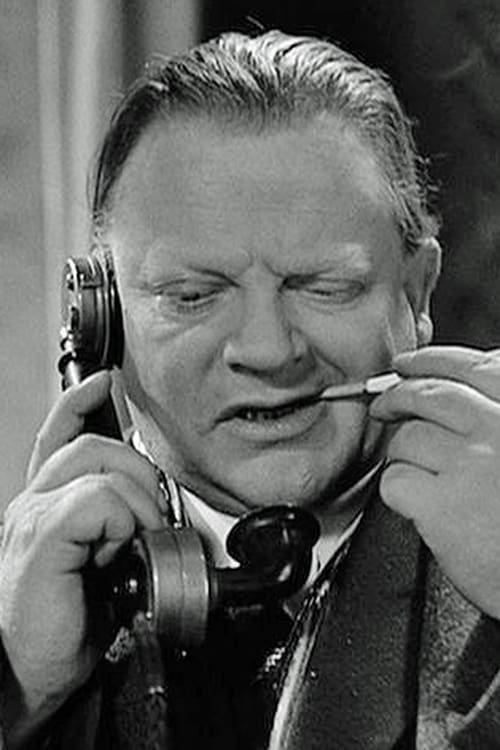Otto Wernicke
Birth : 1893-09-30, Osterode am Harz
Death : 1965-11-07
History
From Wikipedia, the free encyclopedia.
Otto Karl Robert Wernicke (30 September 1893, Osterode am Harz – 7 November 1965) was a German actor. He was best known for his role as police inspector Karl Lohmann in the two Fritz Lang films M and The Testament of Dr. Mabuse. He was the first one to portray Captain Smith in the first "official" Titanic film.
Wernicke was married to a Jewish woman. Only due to a special permit was he allowed to continue his work in Nazi Germany.
Description above from the Wikipedia article Otto Wernicke licensed under CC-BY-SA, full list of contributors on Wikipedia.

Diener Adam Fröschl

Willowitz

Dr. Rainer sr.

Anna is a factory worker in East Germany. Her five-year-old son Jochen lives with his grandparents in the West and Anna wants him to live with her, so she abducts him. Along the way she meets Carl who helps her with her son and they fall in love.

Pietro
An Italian-German crime film. One of Maria Montez's last films.

Amore e sangue (released in the U.S. as "City of Violence"), the 1951 Marino Girolami (billed as "John Wolff") West German/Italian romantic action adventure war thriller.

Gustav Krause

Herr Dakar
A doctor discovers a new medical cure with dangerous side effects, and takes the drug himself to test its limitations.

Director

Kriminalkommissar Thieme

Martin Jürgens

Robert Kornagel, Konditormeister

doctor
"Long is the Road" - The first feature film to represent the Holocaust from a Jewish perspective. Shot on location at Landsberg, the largest DP camp in U.S.-occupied Germany, and mixing neorealist and expressionist styles, the film follows a Polish Jew and his family from pre-war Warsaw through Auschwitz and the DP camps.
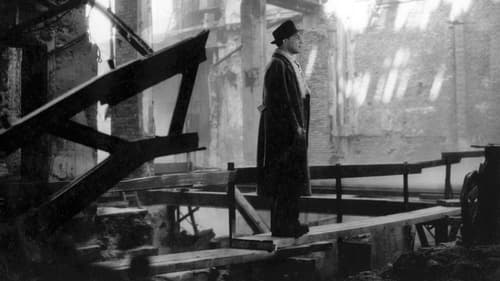
A group of people gathers back in the post-war ruins of a luxurious Munich hotel they inhabited at one point or another years before; each trying to cope with the tragic consequences of the war and their own actions.
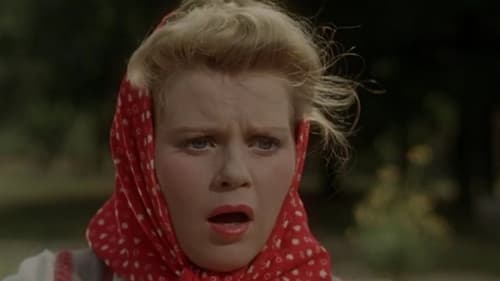
Bauer Werner
During Napoleon's victorious campaign in Germany, the city of Kolberg gets isolated from the retreating Prussian forces. The population of Kolberg refuses to capitulate and organizes the resistance against the French army, which immediately submits the city to massive bombardments.

Fritz Beier

Kunsthändler

Der Vater

Amtgerichtsrat Witt

Obermeister Kramp
The moral is simple: keep your mouth shut, especially when you're working during the wartime in a factory, which produces racing cars only, or someone can (or even must) get murdered. Not a good movie, not a bad either. The ending is abrupt and artificial, which seems to be a common plague of Third Reich's crime movies. Gustav Fröhlich could never get rid of his silent era mannerisms and overacting. But on the other side, this film is not boring and has to offer some decent plot turns and acting.
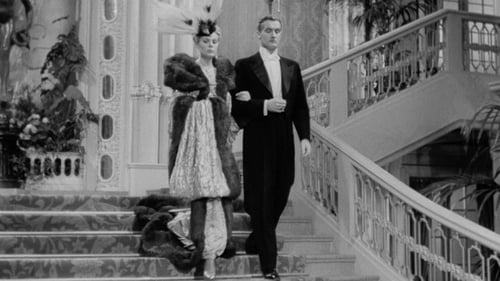
Kapitän Edward J. Smith
This little-known German film retells the true story of the British ocean liner that met a tragic fate. Ernst Fritz Fürbringer plays the president of the White Star Line, who unwisely pressed the Titanic's captain (Otto Wernicke) to make the swiftest possible crossing to New York.

Vater Brugg, Geschäftsführer bei Hellmers

Georg von Schulte, Pferdezüchter
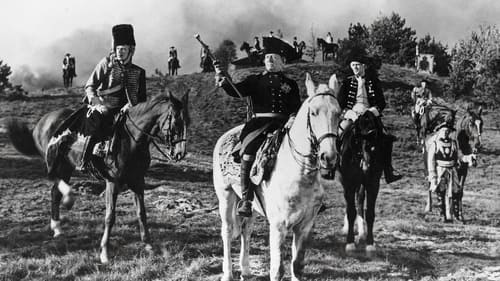
Oberst Rochow
King Frederick II (aka "Frederick the Great") of Prussia is engaged in a major battle against the Austrian army at Kunersdorf, and things aren't going well. The Austrians are inflicting major casualties, and his army is beginning to crumble. Defeat seems inevitable when a combination of events gives him hope that he may pull victory from the jaws of defeat after all.

Ludwig Burgstaller

Old Manz
A Nazi propaganda film which aims to justify the invasion of Poland by portraying the plight of ethnic Germans in Poland who were discriminated against and oppressed by the Poles, and how they were saved by the intervention of the German army.

Fürst Windischgrätz

Franz Tettenborn, Schuhmachermeister

Vogelreuter

Oberwerkmeister Bonicke
Across German screens at the outbreak of WWII streaks "DIII88: The New German Air Force Attacks", an aeronautic and maritime spectacle glorifying Hermann Goring's Luftwaffe and the spirit of the newly arisen Germany. Once war became imminent, Joseph Goebbels instructed the German film industry to initiate production of numerous militaristic projects, but DIII88 was initiated by the Propaganda Minister's rival, Goring, who commissioned several aviation pictures. DIII88 is not a war picture per se, because it takes place in peacetime, but the young, fresh-faced air aces enthusiastically look forward to the coming war. The propaganda is blatant: The only thing that matters is dedication to duty and unconditional commitment to the Fatherland.

Jonathan Pepper

Gast im 'Elite'

This is essentially a "Kraft durch Freude" propaganda film though the organization is never mentioned. A company's three day outing might very well be the last because bankruptcy is just around the corner. The people on the trip have all their individual problems and wishes, too. This episodic film might sound quite promising considering the basic idea but its script is determinedly optimistic and leads everything and anything to a happy end. The dramatic parts are finished in a rather implausible way, the comedic are terribly predictable. There's a badly misjudged singing scene in the bus, some bavarian shtick, the Regensburger Domspatzen are singing in Augsburg and so on...

Thomas Viertinger, Hotelier

Kaufmann Hansen

Police Commissar Borel
It is purely coincidental that an assassination attempt against the Minister of Defense is thwarted. The attempt on his life was made by a group of anarchists. There's an investigation of the clues, which will doubtless lead to the perpetrators; but the investigating commissioner has to proceed carefully, for it is likely there is a traitor in his ranks.

Verwalter Miller

Schradecke, Stellmacher

Vater Hübner - Schmied

Gastwirt Merckel

Kriminalrat

Two brothers (Albert Matterstock and Attila Hoerbiger), who are trapeze artists, are getting along just fine until Hoerbiger runs off with his brother's wife. Matterstock isn't very pleased when his wife is killed.

'Kapitän' Kröker

Jan Morell

Stober, Pastor

Warnecke, Ortsvorsteher in Pümpelhausen

Scheffler - Aufsichtsbeamter
Dark love story.

Onkel Bräsig
The clever Zacharias Bräsig is a good friend to all and tries to help out, where he can. Bräsig also meddles in the relationships of young people, so that by the end of the film, there's a double marriage.

Bonnet - Agent

Godemann - Gastwirt

Geheimrat Grimm, Chefarzt der Klinik

Herr Fluth / Frank Ford

Bäckermeister Holm

Eckhardt
Film by Boese.

Boxmanager Schmidtchen

Inspektor Beneke

Wolter
A German scientist designs and builds a machine that will do dangerous work instead of placing humans in jeopardy. But the machine itself turns out to have disastrous effects on the people involved.

Der Gefängnisdirektor

Thomas Burger
Film by Seitz.

Wolke, Werkmeister
Werner Dux, heir of the big car company "Dux-Werke", is a gambler who has just been arrested in Chicago for shooting a cardsharper. While in jail, he learns from his friend Michael Nissen that his father has died recently. That means that the Dux-Werke are without a leader at the moment, for Werner's cousin Steffie, who is his co-heiress, is still too young to run the firm. In this situation, Werner convinces his friend Michael, who is an engineer by profession, to take over the firm as long as he is in jail and to pose as him. Michael agrees and is able to bring the firm up again. He even arranges a reliability test for motorcycles via Istanbul, Rome and Barcelona, which creates a big Turkish order for the company. When the real Werner escapes from jail and arrives in Germany, it looks as if the whole story is up to bust. But Werner needs money, so he convinces Michael to go on as before and hand over all profits of the firm to him.
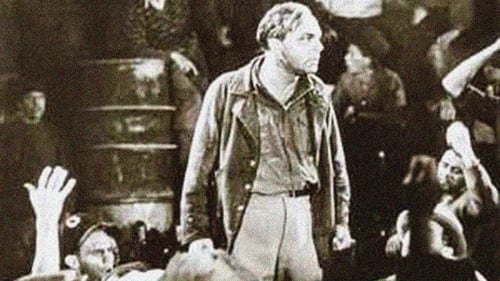
Bärmann
The engineer MacAllan designs a tunnel, which will join America and Europe together on the seabed. A group of American billionaires are financing the gigantic project, but the construction of the tunnel is proving to be as tedious as it is dangerous. MacAllan's worst enemy is the speculator Woolf, who had embezzled the money for the construction and who is attempting to cover up his crime by carrying out acts of sabotage. Also filmed in 1933 in a French-language version, LE TUNNEL, and remade in 1935 in England as TRANSATLATIC TUNNEL.

Herr Brand
This Nazi propaganda film tells the story of a young truck driver who is having trouble making ends meet until he is exposed to the teachings of Adolf Hitler, and he joins the S.A., aka Storm Troopers, and manages to convert his father--a former soldier with Marxist leanings--and his girlfriend of the rightness of the Nazi cause.

Kommissar Lohmann
After a detective is assaulted by thugs and placed in an asylum run by Professor Baum, he observes the professor's preoccupation with another patient, the criminal genius Dr. Mabuse the hypnotist. When Mabuse's notes are found to be connected with a rash of recent crimes, Commissioner Lohmann must determine how Mabuse is communicating with the criminals, despite conflicting reports on the doctor's whereabouts, and capture him for good.

Franz Lechner
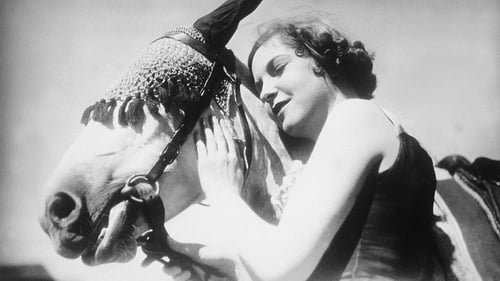
Heiratsvermittler Kezal
Bohemia in the 19th century, stage-coach driver Hans, loves the mayor's daughter Marie, but she is promised Wenzel, the son of another wealthy farmer. Marie refuses to marry Wenzel because of Hans, but the marriage arranger tries to "buy" Marie from Hans. But when Wenzel tells Hans, that he doesn't want to marry Marie, either, because he loves circus director Brummel's daughter, Hans decides to accept the offer of money for not interferring in the relations of Hans and Marie. But when Marie hears about this, she doesn't want to see Hans again.
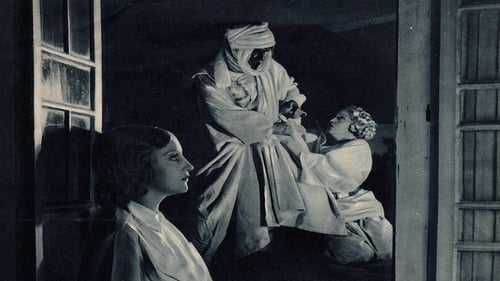
Gesandter

Pitt
Peter Voss, Thief of Millions (German:Peter Voss, der Millionendieb) is a 1932 German comedy crime film directed by Ewald André Dupont and starring Willi Forst, Alice Treff and Paul Hörbiger. It was based on the 1913 novel of the same title by Ewald Gerhard Seeliger which has been adapted into a number of films including previously in 1921 and later in 1946. It was the second to last film made by Dupont in Germany before he was forced to flee to the United States following the rise of the Nazi Party.
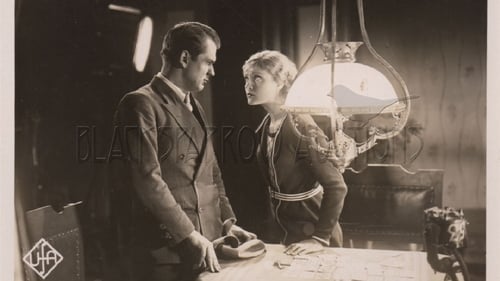
Two inspiration sources appear clearly: contemporary American gangster movies and Alfred Döblin’s novel Berlin Alexanderplatz (1929).
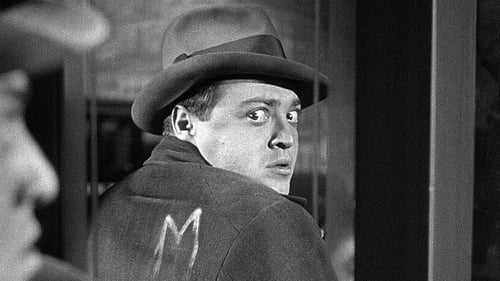
Inspector Karl Lohmann
In this classic German thriller, Hans Beckert, a serial killer who preys on children, becomes the focus of a massive Berlin police manhunt. Beckert's heinous crimes are so repellant and disruptive to city life that he is even targeted by others in the seedy underworld network. With both cops and criminals in pursuit, the murderer soon realizes that people are on his trail, sending him into a tense, panicked attempt to escape justice.

Philipp Worrington
